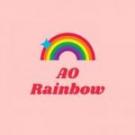Introduction
Co-led by Malissa Bryan, Adam Davies, and Orion Neustifter, the Sexual and Gender Diversity cluster researches the themes of sexuality, gender, sex, and relationships. It considers the intersection of these themes in their diverse forms and how they relate to families, work, and well-being. The Sexual and Gender Diversity Cluster prioritizes the intersectional diversity of sexual and gender identities and seeks to improve the well-being of individuals through high-quality and value-driven research, teaching, mentorship, and community engagement.
Current and Future Projects:
Guelph Sexuality Conference
After 40 years, Canada’s leading annual training and education forum for sexual health professionals was discontinued in 2021, but committee members are hoping to transform how the conference is presented and explore sustainable opportunities that will meet the diverse needs of our communities.
LGBTQ+ and Organizations
To foster a more complex understanding of LGBTQ+ workers, several projects examine experiences and outcomes across employment sectors, geographic regions, and intersecting identities.
The Anti-Oppression Rainbow Lab
The purpose of this lab (formerly the Sexual and Gender Diversity Lab) is to provide a supportive learning environment for students who are interested in conducting sexual and gender diversity research. Open to graduate and undergraduate students with all levels of experience, the lab’s peer-mentoring style transfers knowledge and skills in a collaborative rather than top-down manner. The lab welcomes researchers from all disciplines within the social sciences, to promote an interdisciplinary set of frameworks and lenses through which to see our research. Researchers in this lab may be focus on specific identities encompassed by the term "sexual and gender diversity," including any or all members of the LGBTQ acronym, or on topics that relate to the wellbeing of sexual and gender diverse individuals, such as research on allies or sexual prejudice.
Anti-Oppression Rainbow TikTok channel makes learning effective and inspiring
A project in the Anti-Oppression Rainbow Lab, led by Drs. Orion Neustifter and Adam Davies, used TikTok videos to share stories and information about relationships, communication, mental health, and sexuality for an international audience. The videos were shared on a TikTok channel created for the project, called “AORainbow." Student Deidre Gerrits, in the Bachelor of Arts and Sciences program at the University of Guelph, managed the project as part of an independent study course. Deidre worked with a group of students including Bronte Shay, Sarah Mitchell, Tay Smith, Tatiana Fisher, and Romario Smith to gather information from literature reviews, interesting topics they found in the media, or material that arose in classes. That information was then be turned into knowledge sharing through videos ranging from 30 seconds to one minute. The students gathered information that they believed is most powerful, impactful, and effective in inspiring viewers. Their aim was to post at least two videos per month on the channel, each with a different topic and approach.
Experiences of work and identity of queer South Asian Women
Honours thesis student Jasmine Singh's research with supervisor Thomas Sasso was accepted for a talk at the Society for Industrial and Organizational Psychology 36th Annual Conference. The talk, “Experiences of work and Identity of Queer South Asian women,” is part of a symposium session called “Digging Deeper into Disclosure: Coming Out as LGBTQ at Work.” The research aims to understand disclosure experiences and conceptualizations of queer South Asian women (QSAW). Disclosure is commonly understood as "coming out," in which an individual reveals their sexual orientation across life domains. Researchers aim to analyze the experiences of disclosure of QSAW using an intersectional and culturally contextualized lens. Additionally, researchers will assess disclosure disconnects in which the individual does not consistently disclose their sexual orientation across life domains. Lastly, researchers aim to understand the positive implications of inconsistent/partial disclosure across life domains for QSAW.
Positive experiences of LGBTQ+ individuals in the workplace
This study examines the ways in which LGBTQ+ individuals create positive associations and attributions of their sexual and gender identities in workplace contexts, challenging the assumption that LGBTQ+ employees only experience negative workplace outcomes. To learn more, contact Thomas Sasso. Researchers are Thomas Sasso and Nicholas Salter, Ramapo College of New Jersey.
Understanding the experiences of LGBTQ+ Canadian workers
Thomas Sasso's doctoral research examines the contemporary experiences of LGBTQ+ individuals across employment sectors, geographic regions, and intersecting marginalized identities to foster a more complex understanding of how individuals experience their LGBTQ+ identities in Canadian workplace contexts. To learn more, contact Thomas Sasso.
Cluster Leaders:
Contact us for more information!


